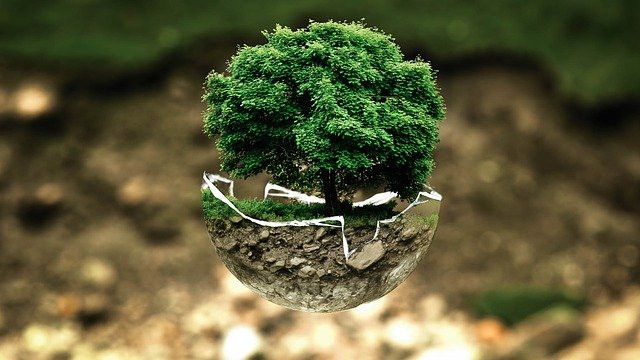Japan is known to provide competitive and quality education to its students. With the combined fact that Japan is a global leader in innovation, it is a great place for budding biologists interested in studying biology and establishing a career moving forward with its renowned universities and facilities.
Table of Contents
- Top Biology Universities in Japan
- Job Opportunities for Biology Graduates in Japan
- Visa and Language Requirements
- Summary
Top Biology Universities in Japan
Japan has a promising future when it comes to providing education in biology studies and undoubtedly holds some of the best institutions in the industry. Here are some of the universities in Japan worth checking out:
From the Top 100 Best Universities for Biology and Biochemistry (2021)
University of Tokyo (#1 in Japan, #34 in the world)
The University of Tokyo (or Todai)’s history of providing education in biology dates back to 1877 when its Department of Biology was established. Since then, the school of science has steadily grown and successfully established up to 15 undergraduate and graduate departments such as Astronomy, Physics, Biophysics and Biochemistry, Biological Sciences and more.
Not stopping there, Todai had, in 2018, relaunched the Institute of Molecular and Cellular Biosciences as the Institute for Quantitative Biosciences whose purpose is to research quantitative approaches to biology studies.
Undergraduate studies will focus on building in students a solid foundation of understanding experimental methods, using the latest available techniques, planning of experiments, and ways to observe results. Emphasis will be placed in performing experiments as well as immersion in outdoor fieldwork at partner institutions.
In comparison, the graduate programmes are focused on educational research with the goal of discovering new facts and coming up with new concepts.
Foreign students are accepted. Graduate programmes are available in English (basic level of Japanese is recommended for an easier time). Undergraduate programmes are only available in Japanese. Fluency in Japanese is expected to be able to understand lectures.
Have a look at The University of Tokyo’s School of Science website for more information.
※ School of Science, The University of Tokyo, "Attraction of Each Department" ※ School of Science, The University of Tokyo, "Academics"
Kyoto University (#2 in Japan, #55 in the world)
The Department of Biology was established in 1919 and is a precursor of the Department of Biological Sciences. The department eventually became a main division with two sub-departments, Botany and Zoology. Subsequently, a new Department of Biophysics was added in 1967.
As their names imply, the three departments focus on the study of biology in its respective fields. With zoology focused on the study of living creatures and beings, botany on plants and the environment, and biophysics on molecular mechanisms.
Kyoto University offers a wide range of study courses that are open to international students. Other than specific English-Taught Degree Programmes, the programmes will be conducted in Japanese which requires fluent Japanese. The university also operates double/joint degree programs with partner institutions around the world, such as master’s course in global environment studies with Tsinghua University (China), doctor’s course in economics with University of Glasgow (United Kingdom), doctor’s course in medicine with McGill University (Canada), and more.
Non-degree seeking programmes include research students courses and also exchange programs with study periods of 6 to 12 months in Kyoto. There are many other courses that may suit your needs, check with Kyoto University’s Admissions Page for more information.
※ Graduate School of Science, Kyoto University, "Division of Biological Sciences" ※ Graduate School of Science, Kyoto University, "About the Department of Biological Sciences"
Osaka University (#3 in Japan, #94 in the world)
The Department of Biological Sciences was restructured in the late 1990s by the fusion of the earlier established Physiology and Biochemistry divisions.
The Graduate School of Science and its departments offer an assortment of undergraduate, graduate, international exchange, short-tem, and research student programs. Its Department of Biological Sciences is distinguished from other universities by its division not in main fields of study but according to its laboratories focus of research. For example laboratory of cell biology, plant cell biology, cellular regulation, protein folding, and many more.
Osaka is welcome to foreign students who are willing to partake in the university’s curriculum. Do note that most of its courses require a certain level of Japanese. For its bilingual International Undergraduate Programme in Science (IUPS), applicants are expected to have at least JLPT N3 level of Japanese proficiency. Fortunately, for graduate programmes (master’s and doctor’s course), there are programmes conducted solely in English.
※ Osaka University School of Science, "Department of Biological Sciences" ※ Osaka University, "Studying at OU as an Exchange Student"
From the Top 300 Best Universities for Biology and Biochemistry (2021)

Followed by Japan’s top 3 universities in biology are another 7 of note esteemed universities that have managed to rank top 300 in the world for biology and biochemistry. They are Tohoku University, Hokkaido University, Nagoya University, University of Tsukuba, Kyushu University, Kobe University, and Tokyo Institute of Technology - all of which are open to international students around the world.
The ranking for the top 100 and top 300 universities was taken from the U.S. News ranking of “Best Global Universities for Biology and Biochemistry in Japan”.
※U.S. News, “Best Global Universities for Biology and Biochemistry in Japan”
English Taught Undergraduate Programmes
Non-Japanese speakers rejoice, there is still a path for you to study biology in Japan. Here’s a list of undergraduate programmes that are available in English:
Writer's Pick
Job Opportunities for Biology Graduates in Japan

There are many work opportunities in Japan for someone graduating from a science background, specifically. Following are some possible careers options to consider.
Biotechnologist
A biotechnologist studies living organisms and discovers ways to develop new and better products. With the flexibility to venture into different fields, they can specialise in any area of expertise to become biochemists, medical scientists, or more.
Ecologist
An ecologist studies phylogeny and engages in experiments relating to the ecosystem. There are lots of companies looking for environmental scientists in Japan, including the Environmental Science Corporation in Tokyo that is always looking for new members to join their ranks.
Educator
Many biology graduates, usually holders of master’s degree or a doctorate, stay on at their graduate universities as full-time lecturers. University professors that choose this career path are usually extremely passionate about their research topic and area of interest. Alongside their teaching duties, it is common for instructors to head or supervise research projects, holding a double role as both educator and researcher.
Pharmacologist
Pharmaceutical companies such as Bayer, Takeda Pharmaceuticals, Daiichi Sankyo are just a few of many that are always on the lookout for masters in the field. This role includes the analysis of pharmacodynamics and pharmacokinetics of drugs when applied to living organisms.
Researcher
Many graduates passionate about biology move on to pursue a master’s course and then a doctor’s course. Not having had enough, instead finding more questions than answers, they take up the coat of a researcher to make their own contributions to biological knowledge and breakthroughs. There are many research, medical, educational, pharmaceutical etc. institutions that are in need for a fresh and bright-minded researcher to join their ranks.
Read our article here about finding a research job in Japan.
Visa and Language Requirements

Visa Requirements
Depending on the type of programme you are enlisting in, the type of visa required may differ. For the purposes of this article, we will be focusing on obtaining a student visa for longterm undergraduate, doctor’s and master’s courses.
Once you have successfully been shortlisted to enroll in your dream university, you will be required to secure the said student visa. In order to do so, a Certificate of Eligibility (COE) from a regional immigration office in Japan is needed, this is where your chosen university will assist you. Follow the university’s support staff’s guidance in providing the necessary documents. If everything goes well, you should receive your COE within 3 months by mail from the university. Thereafter, you can commence with the visa application on your end.
Below are the essential documents that need to be submitted to the Embassy of Japan in your country of origin:
-
Valid passport
-
Completed visa application form
-
One recent photograph
-
Original and copy of COE
Please note that documents may vary depending on nationality, kindly check the Embassy of Japan’s website for your country’s requirements.
※ Ministry of Foreign Affairs of Japan, "General visa: Student"
Language Requirements
English fluency is imperative to study biology in Japan. For Japanese proficiency, fluency is required for Japanese courses obviously, whereas a basic understanding of Japanese will help you navigate around Japan a lot better even if your programme is in English. Some universities provide Japanese language studies as an accompaniment to your degree programme. Take full advantage of the opportunities provided to you to further yourself.
Summary

The vast number of established and reputable universities to study biology in Japan makes choosing the perfect place a chore. Majority of schools invest extensively in their biological and science courses to maintain quality research and be at the forefront of their computers, which in turn generates quality students with promising futures capable of taking the lead in their respective fields of research. Being an international student can be a tough battle, with the struggle of a different language, exorbitant fees, and exposure to culture outside your own norm. But even so, it is a once in a lifetime opportunity that you will surely not regret.

































